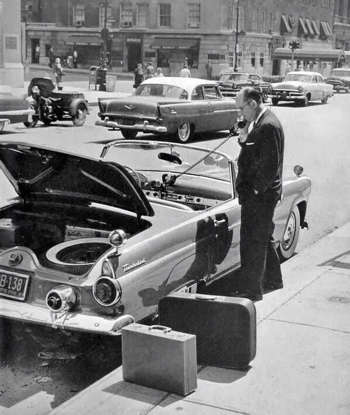
On July 15, 2006, the San Francisco-based podcasting
company Odeo officially released Twttr—later changed
to Twitter—its short messaging service (SMS) for groups,
to the public.
Born as a side project apart from Odeo’s main podcasting
platform, the free application allowed users to share short
status updates with groups of friends by sending one text
message to a single number (“40404”). Over the next few
years, as Twttr became Twitter, the simple “microblogging”
service would explode in popularity, becoming one of
the world’s leading social networking platforms.

Twitter co-founder Evan "Ev" Clark Williams

Jack Patrick Dorsey Twitter co-founder and
former CEO.
















